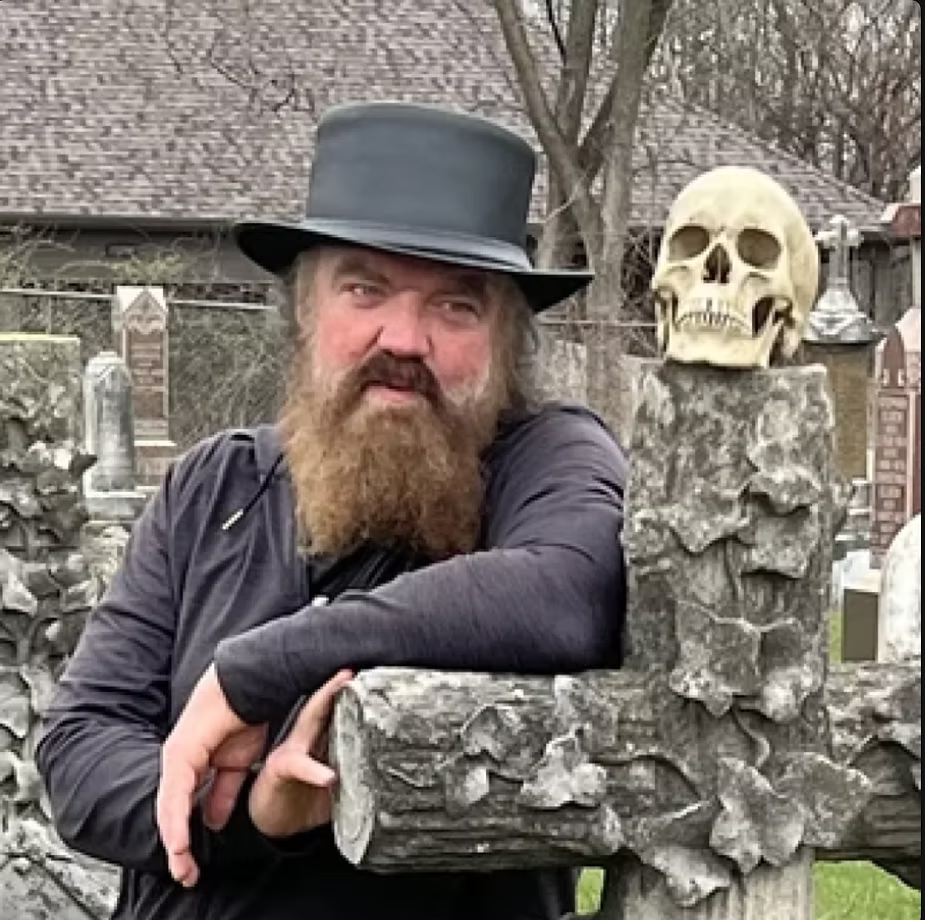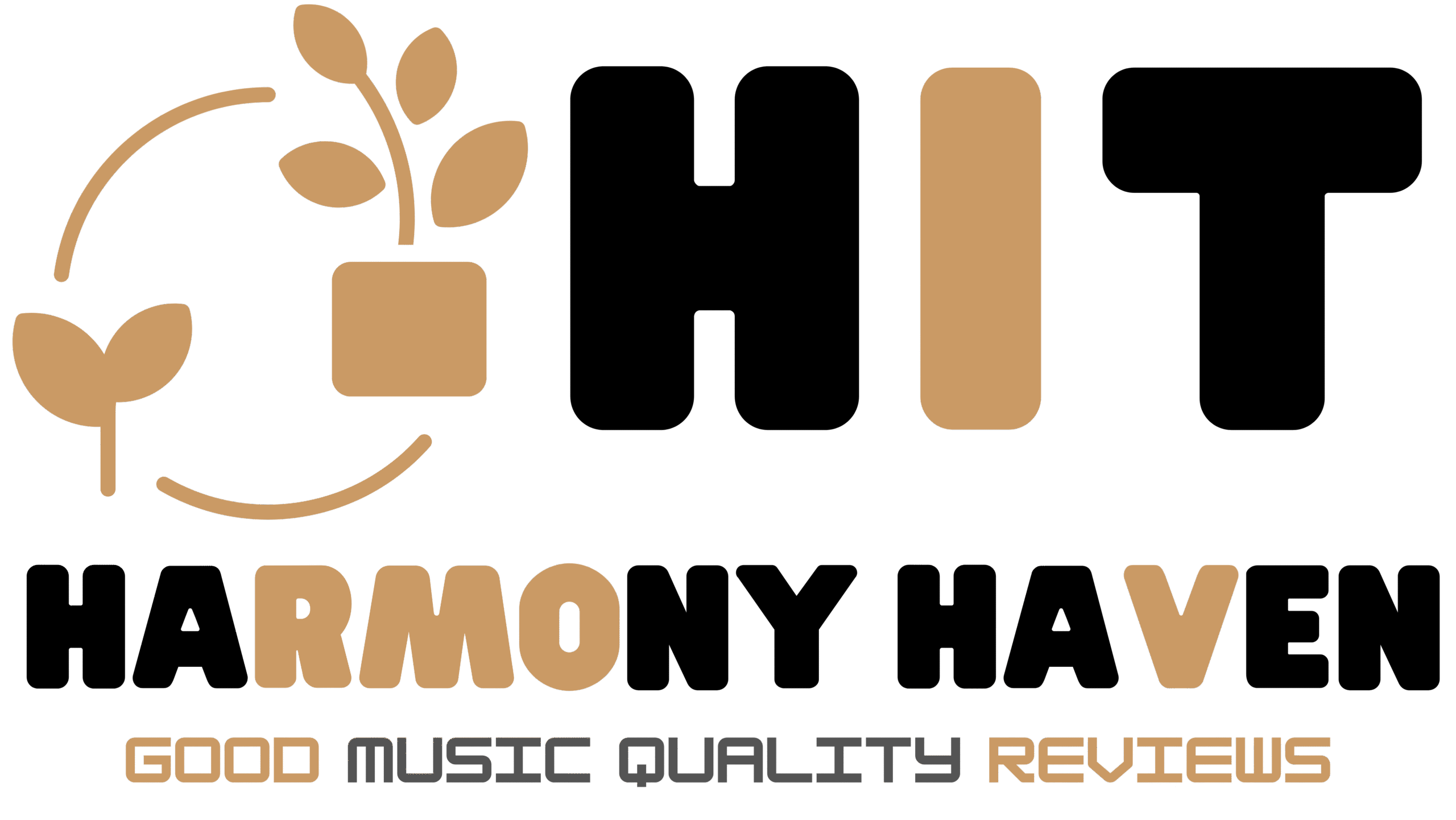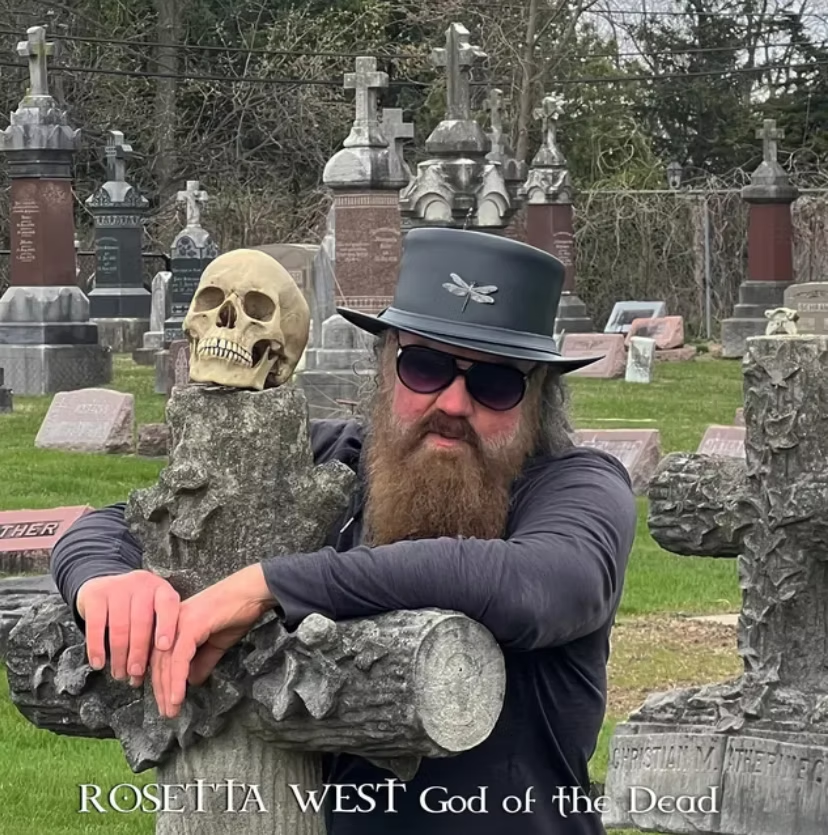There’s no mistaking the intention behind Rosetta West’s “God of the Dead,“ and this isn’t an album that merely plays, but possesses. From the very first tremor of “Boneyard Blues,” you’re pulled into a twilight world built on rusted strings, howling ghosts, and mystic fever dreams. The Illinois-based band has always been a shapeshifter in the underground scene, but here they transcend even their folklore. Frontman Joseph Demagore delivers a performance that feels less like entertainment and more like an invocation, while his bandmates follow him into the sonic abyss with devotion that borders on the spiritual.
Rosetta West operates at the crossroads of blues, folk, metal, and psychedelia, but “God of the Dead“ doesn’t settle in any one camp. “Underground” fuses gritty, sweat-slicked rock riffs with drumming that borders on the primal, while “Chain Smoke” sounds like it was scraped off the walls of a haunted dive bar at 3 a.m. Then there’s “Susanna Jones, Pt. 1” and “Pt. 2,” which bookend the album’s more narrative arc—a fevered tale of love, loss, and perhaps damnation. These songs don’t try to be pretty, but live, and in doing so, they bleed.
Demagore’s voice is a weapon of texture. It doesn’t croon or soar, but scrapes, growls, and exhales. On “I Don’t Care,” he slips into ghostly resignation, while “Inferno” finds him snarling like a man singing from inside a burning church. His guitar work is equally unstable, careening from jagged funk bursts to sorrowful acoustic fingerpicking. Meanwhile, Orpheus Jones on bass lays down lines that feel like low chants, steady, hypnotic, and undeniably present.
But what makes “God of the Dead“ stand apart is its refusal to cohere into a tidy package. “Tao Teh King” is one of the wildest detours; a psychedelic, philosophical freak-out that could have been lifted from a lost CAN or Beefheart bootleg. And then “Summertime” arrives like a punch-drunk lullaby, covered in dirt and distant bells. These contradictions don’t weaken the record, but define it. It’s an album in constant flux, the kind that refuses to be pinned down.
The production choices reflect the album’s raw soul. There’s grit in the mixing, tape hiss in the corners, and just enough feedback to keep your spine on edge. Drummers Mike Weaver, Nathan Q. Scratch, and Caden Cratch each bring a different flavour of chaos to the mix, and some tracks gallop whilst others crawl. The inclusion of guest bassist Louis Constant on “Midnight” adds subtle warmth before the track plunges into electric melancholy.
Lyrically, Demagore doesn’t write so much as summon. His lines read like spells carved into stone: cryptic, poetic, and often unsettling. “Town of Tomorrow” ponders dystopia with a bluesy shrug, while “Thorns of Beauty” might be one of the most evocative, drawing stark images of grace wrapped in barbed wire. There’s a certain spirituality at work here—one not found in hymns, but in the dark silences between broken notes.

Rosetta West has never been for the mainstream, and that’s the point. “God of the Dead“ is the culmination of their outlaw spirit, an album that feels like a séance disguised as a record. It doesn’t chase algorithms or playlists, but whispers to the lost, the lonely, the feral-hearted. It demands patience, immersion, and maybe even a bit of madness.
In a musical landscape often crowded with polish and posturing, “God of the Dead“ stands as a feral prayer; unapologetic, unfiltered, and unforgettable. It’s a body you have to step into, a ritual you have to endure. And if you let it, Rosetta West will show you where the gods sleep.
For more information, follow Rosetta West:
Bandcamp – Spotify – YouTube







